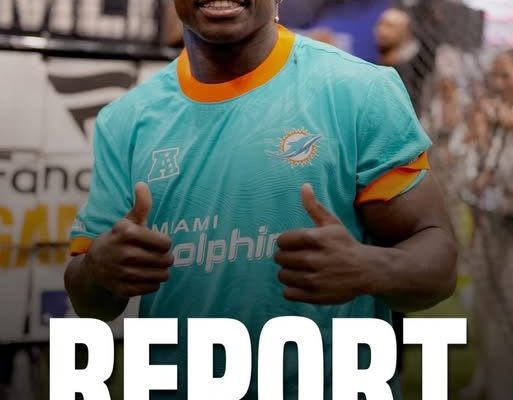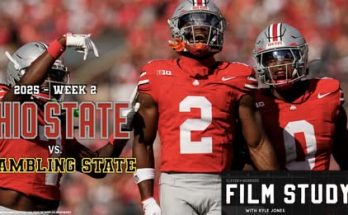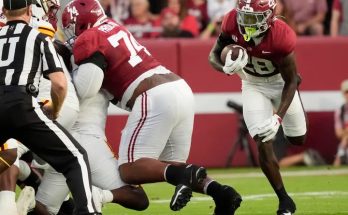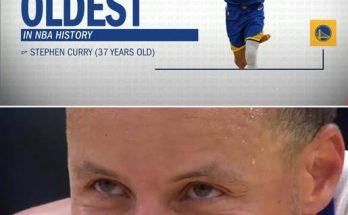The Miami Dolphins entered the 2025 NFL season with high expectations, built around a roster filled with speed, explosiveness, and the kind of star power that has put them firmly in the Super Bowl conversation for much of the past two years. Yet after Week 1, following a stunning 33-8 blowout loss at the hands of the Indianapolis Colts, speculation has swirled around the direction of the franchise, particularly concerning one of the team’s brightest stars, wide receiver Tyreek Hill. According to NFL insider Jeremy Fowler, the Dolphins have received trade calls inquiring about Hill’s availability, but to this point, Miami has shown no real interest in dealing the All-Pro receiver. This development, while not entirely surprising given Hill’s status as one of the most dangerous weapons in the league, raises several important questions about the Dolphins’ strategy moving forward, the perception of their competitiveness, and what this means for both Hill and the team as they navigate a season already filled with scrutiny.
Hill’s presence in Miami since his blockbuster trade from the Kansas City Chiefs in 2022 has been transformative. His ability to stretch defenses vertically, change games with one explosive play, and command double coverage has opened up opportunities for the Dolphins’ entire offense. Quarterback Tua Tagovailoa, whose accuracy and anticipation thrive on timing routes, has benefited enormously from Hill’s speed and ability to get separation at every level of the field. Together with fellow wideout Jaylen Waddle, Hill has formed part of one of the most feared receiving duos in the NFL. For Miami, trading him away would not only weaken their offense but also send shockwaves through the organization, potentially signaling a retreat from their Super Bowl ambitions. It is for this reason that the Dolphins have understandably resisted the idea, even in the face of outside inquiries.
The timing of these trade calls also cannot be ignored. The Dolphins’ Week 1 loss to Indianapolis was not just a defeat; it was a blowout that exposed vulnerabilities on both sides of the ball. Offensively, Miami struggled to protect Tua, the running game failed to establish rhythm, and the Colts’ defense effectively neutralized Hill, holding him to uncharacteristically low production. On the other side, the defense gave up big plays and failed to contain a Colts offense that looked far more dynamic than many anticipated. For critics, such a loss in the opener raised doubts about whether the Dolphins’ flashy, high-speed offense could hold up when things got ugly in the trenches. And for opposing general managers, seeing Miami stumble provided the perfect opportunity to test the waters and see if the team’s leadership might be shaken enough to consider dealing one of their best assets.
But if history tells us anything, it is that teams rarely move on from players of Hill’s caliber unless forced into a corner. Wide receivers who combine world-class speed, elite production, and game-breaking ability are exceedingly rare, and Hill has consistently proven to be among the top five in the league since entering it. He is not only a weapon in his own right but also someone who dictates coverages and shapes the way defenses approach the Dolphins. Trading him would not be akin to moving an expendable piece for draft capital; it would be stripping away the very identity of Miami’s offense. The Dolphins’ decision to hold firm, despite the calls, speaks volumes about their belief in Hill and their refusal to panic after one game.
Still, the fact that teams are reaching out tells us something about how the rest of the league views Miami’s situation. Executives know that a blowout loss in Week 1, particularly one where frustrations could be seen on the sidelines, creates an environment ripe for rumors and overreactions. General managers are opportunistic by nature, and if they sense even the slightest chance that a star might become available, they will make the call. Fowler’s report doesn’t suggest Miami is shopping Hill, only that they have received inquiries, which is to be expected in the NFL whenever a team suffers a setback. What is more important is Miami’s response, and so far that response has been one of resolve.
For Hill himself, these rumors likely provide motivation more than anything else. Known for his competitive drive and swagger, Hill thrives on proving doubters wrong and silencing critics. A poor outing in Week 1 is unlikely to shake his confidence, and if anything, it will fuel him to bounce back with the kind of performance that reminds everyone why he is one of the most feared players in football. His chemistry with Tua, while stifled against the Colts, remains strong, and with an extra week of preparation, Miami will surely look to reestablish Hill early and often in their next matchup.
The Dolphins also have to consider the optics of stability. This is a franchise that has been chasing consistency and credibility for decades, trying to reassert itself as a perennial contender in a conference dominated by teams like the Kansas City Chiefs, Buffalo Bills, and now the Baltimore Ravens. Trading Hill, especially this early in the season, would undermine that effort, creating the appearance of internal doubt. For a fan base that has been energized by Hill’s arrival and the excitement he brings every time he touches the football, dealing him away would be nothing short of deflating. Miami’s leadership, from general manager Chris Grier to head coach Mike McDaniel, understands that stability matters just as much as talent when it comes to building a championship culture.
Looking at the broader context, one bad loss does not define a season. Teams across the NFL often stumble in Week 1 before finding their footing, and the Dolphins still boast one of the most explosive rosters in the league. Hill, Waddle, and Tua remain a trio capable of putting up points in bunches, while the defense, led by standout players like Jalen Ramsey and Jevon Holland, has the potential to rebound from its poor showing. To hit the panic button now, especially by considering trading a player of Hill’s caliber, would be premature at best and self-destructive at worst.
That being said, the inquiries into Hill’s availability do highlight a reality that Miami must confront: when you have stars, you will always have teams calling. Whether it is Hill, Waddle, or even a defensive standout, rival general managers are constantly looking for ways to improve their rosters, and making a call costs nothing. It is part of the business of the NFL, where windows of contention can open and close quickly. The Dolphins’ job is to separate real opportunities from distractions, and in this case, the smart play is clearly to keep their focus on the field.
There is also the contractual element to consider. Hill is not just a short-term rental; he is under a lucrative deal with the Dolphins that signaled their long-term commitment when he was acquired from Kansas City. That contract, while expensive, reflects Miami’s belief that he is a cornerstone piece. Any team calling about Hill would have to not only offer significant draft compensation but also be willing to take on his contract, a factor that further reduces the likelihood of any serious movement.
For Miami, the task now is to respond to the Colts loss in a way that quiets the noise. If Hill comes out in Week 2 and posts his typical 150 yards and a touchdown performance, the trade chatter will dissipate quickly, replaced once again by the awe and respect he commands across the league. In that sense, the best way to put these rumors to rest is not through public statements but through play on the field. Hill has the ability to do just that, and the Dolphins have every reason to believe he will.
Ultimately, the story of trade calls for Tyreek Hill is less about genuine trade discussions and more about perception. The NFL is a league where narratives can shift in an instant, and a blowout loss can suddenly make a contender look vulnerable. Other teams sense that vulnerability and test the waters, but Miami’s firm stance shows they are not rattled. Hill remains central to their identity, their ambitions, and their ability to win games. As long as that is the case, trade calls will go unanswered, and the Dolphins will continue to bet on the very player who makes them one of the most dangerous teams in the league.
In the grand scheme, this moment will likely be remembered not for serious trade negotiations but as an early-season reminder of how quickly speculation can arise in the NFL. For Miami, it is a chance to reinforce their commitment to their stars, to rally around a tough loss, and to show that one game will not derail their pursuit of greatness. And for Tyreek Hill, it is another opportunity to do what he has done throughout his career: silence the noise by letting his play speak louder than any rumor ever could.



